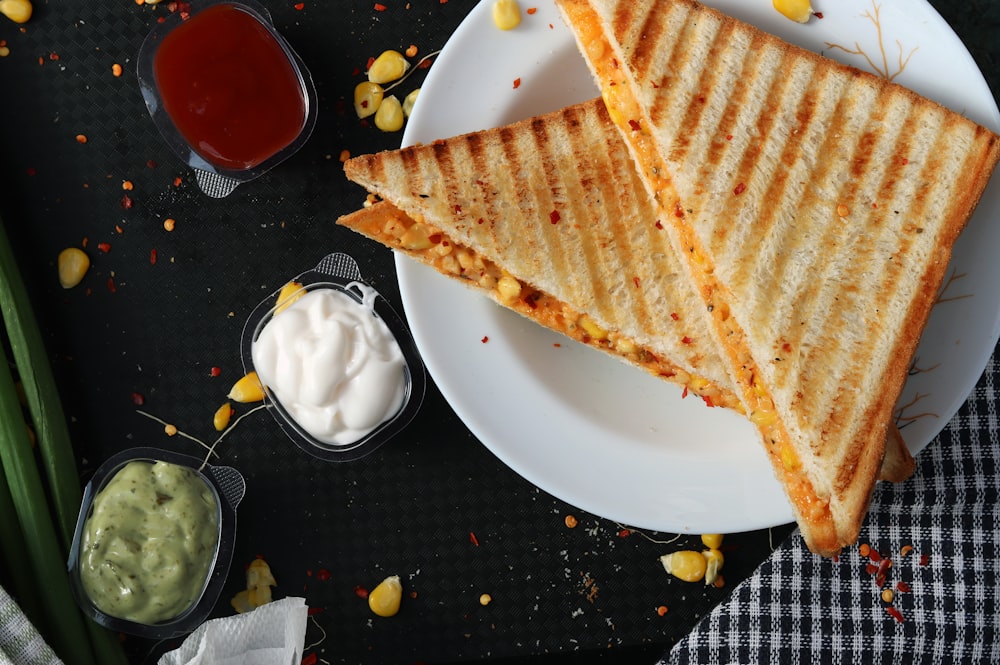
Many people who hear about the pescatarian diet cannot help but associate it with the vegetarian’s similar sounding name. It is actually a correct assumption because a pescatarian is someone who adds seafood like fish, molluscs, and crustaceans to a vegetarian diet.
Pescatarians love eating foods like grilled prawns, scallops, fish, and other seafood along with healthy veggies and a normal intake of carbs. Unless the pescatarian is doing a low-carb pescatarian diet such as the Pescatarian Keto diet, their consumption of carbohydrates will be normal.
If you are looking for a healthier diet and you enjoy eating fish and other seafood as your main protein source, the advantages of going pescatarian may convert you into one. After all, it is a well-rounded and flexible diet that you could readily adapt to cater to your lifestyle.
Here’s a quick overview of the pescatarian diet, focusing on the diet’s benefits, drawbacks, and even some sample food menus to help you get started.
Pescatarian Diet: The Basics
Simply put, a pescetarian does not eat red meat and poultry but consumes fish and other seafood as their main source of protein. Forgoing livestock but still eating seafood with veggies means you get the best of both worlds. You can enjoy the bounty of the sea while reaping the benefits of a plant-based diet.
The unique term ‘pescatarian’ was coined in the early 90s. It combines “pesce” and “vegetarian.” Pesce is an Italian word that means fish, and its origin comes from the Latin word piscis. For this reason, others spell it as “pescetarian,” but it essentially refers to the same concept. You may also find pescatarian dubbed as pesco-vegetarian in scientific journals.
Health Benefits of Combining Seafood and Veggies
Today, many people follow this diet plan for a variety of reasons. Others simply do so as a matter of taste bud preferences. For others, however, they have more complex reasons for sticking with this lifestyle. Here are some of the main ones:

Enjoy a Healthier Body
Many have already proven that a plant-based diet lowers your risk of obesity, heart disease, and diabetes. Going pescatarian will still allow you to reap the same benefits while enjoying a healthy protein source. Unlike meat with high saturated fat content, fish and other seafood offerings have lower and healthier fats. This diet is a great alternative for people who cannot fully commit to going totally vegetarian.
Besides, research indicates that eating less meat lowers your risk of getting cancer. Moreover, limited meat intake also minimizes your chances of developing heart ailments. Less animal fat equates to a reduction in bad cholesterol and lowering blood pressure levels. More importantly, eating 2 servings of fish per week will benefit your overall cardiovascular health.
For example, oily fish like salmon and mackerel contain Omega-3 Fatty Acids, which help minimize plaque buildup in arteries and increase good cholesterol levels. This component can also lower your chances of getting an arrhythmia (irregular heartbeat). On top of that, the oils contain EPA and DHA, which help with heart and brain function.
Enjoy Additional Nutrients
Apart from Omega-3, you will benefit from other nutrients when you take in seafood. Take a look at the following examples below:
- Oysters: High in zinc, selenium, and vitamin B12, which all boost your immune system.
- Mussels: Rich in manganese, vitamin B12 and B6, and selenium.
- White Fish: Non-fatty fish like flounder or cod may not provide Omega-3, but it is an excellent source of lean protein.
Incorporating seafood into a vegetarian diet proffers more flexibility. It also provides more protein options other than the usual tofu and beans.
Minimize Environmental Degradation
Going pescatarian minimizes the environmental impact of what you consume. Raising livestock wastes tons of natural resources and releases pollutants. Notably, the United Nations shared that livestock farming contributes to 15% of human-made carbon emissions.
Contrary to this, producing fish and seafood equates to lesser environmental degradation. Thus, people who feel concerned about being good stewards to mother earth may feel happier and more at peace by going pescatarian.
Live Soundly Following Ethical Standards
When people go vegetarian, ethics usually play a big role in the decision. However, some pescetarians also abide by the same principles when they choose to forgo meat and poultry. These are:
- Opposing inhumane conditions: Cattle and poultry are raised in poor and inhumane conditions. By going pescatarian, it means they do not support the ill practices associated with raising livestock.
- Standing against labor exploitation: Massive agricultural farms often have poor working conditions for the farmhands. Forgoing meat and poultry mean they are not a part of the problem.
- Resisting unsafe practices: Livestock farming has been known to use tons of antibiotics and growth hormones. Sadly, these are not safe for human consumption.
- Choosing humanitarian reasons: Farmers need tons of feed to sustain animal farming. As a result, farmers unjustly use the land to grow grain for feed. In a world where many die from hunger, this is a bitter pill to swallow.

The Drawbacks of Going Pescatarian
Some proponents assert that going pescatarian is not completely worry-free. To illustrate, some types of fish like swordfish, tuna, shark, tilefish, and king mackerel possess high levels of mercury. Unfortunately, this heavy metal has been proven to cause health issues, especially for young children.
Mercury poisoning can affect the gastric (stomach), neurological (brain), and renal organ systems (kidneys). In mild cases, people experience insomnia, upset stomach, and headaches. Moderate symptoms are speech issues, hearing impairment, walking problems, and emotional changes. In the worst-case scenario, toxic levels of mercury cause kidney damage.
For this reason, some governments recommend that young children, pregnant women, breastfeeding moms, or women who plan to bear children soon must avoid fish with high mercury. They also advise moderation because too much of anything can create an imbalance. Instead, they recommend choosing lower-mercury content fish and seafood such as the following:
- Herring
- Shrimp
- Pollock
- Catfish
- Sardines
- Lake trout
- Salmon
What Do Pescatarians Eat?
Pescatarian eats what a vegetarian consumes with the addition of seafood. If you follow this diet, you can partake in the following:
- Fruits and veggies
- Whole grains
- Grain products
- Tofu and tempeh
- Legumes like beans, soy, lentils, garbanzos, hummus
- Various nuts, including their jars of butter
- Seeds such as sunflower, chia, hemp, and flax
- Dairy products (milk, cheese, yogurt)
- Fish, mollusks, and crustaceans
- Eggs
What Foods do Pescatarians Avoid?
If you follow the pescatarian diet, you cannot eat the following:
- Pork
- Beef
- Chicken
- Goat
- Lamb
- Turkey
- Wild game
Notably, a healthy pescatarian diet consists of minimally processed food. Remember, going on a meat-free diet that’s chock full of processed starch, unhealthy treats, junk food, and fats will still harm your health in the long run.

Sample Pescatarian Menu
Below is a sample pescatarian menu. Just choose one option from each category and make sure it falls within the nutrient and calorie needs you have for the day:
Breakfast
- Steel cuts oat with almond milk and berries
- Peanut butter smoothie with banana and kale
- Toast with egg and tuna
Lunch
- Smoked salmon wrap
- Soba noodles with ginger sesame fish
- Sushi and miso soup
Dinner
- Quinoa with kani, mango, nori strips, and kewpie dressing with grilled fish
- Teriyaki fish with veggies over egg noodles
- Shrimp and mussels pomodoro pasta
Snacks
- Yogurt with granola and nuts
- Cube cheese and crackers
- Seaweed chips
Is The Pescatarian Diet Right For You?
Many people love being pescatarian. This way of eating provides you with more menu options than a typical vegetarian diet and is much less restrictive than a vegan diet. Overall, eating a plant-based diet with fish, molluscs, and crustaceans is a very healthy way of life, especially if it helps you avoid weight gain and cardiac issues.
However, with so many different diets to choose from, it can be quite challenging to figure out which is a mere fad versus a truly sustainable diet that will benefit you holistically. For best results, you must stick with a diet that accommodates your genetic food sensitivities.
For example, if you are allergic to shrimp and other crustaceans, you must cut this out from your menu, or you can suffer from hives, asthma, or anaphylaxis. In addition, genetic predispositions signify that each individual will get varied results from different diet plans. As such, you must find a plan that’s tailor-fit for your body’s unique needs.
To assist you in finding out what your optimal diet type is based on your genetics, a Circle DNA Test and the dietary profile included in it can help you. This quick and easy DNA test will recommend a nutrition profile that suits you. Remember, before embarking on anything new such as a new diet, consult a professional and be aware of any food allergies you might have.






This Post Has 2 Comments
Comments are closed.